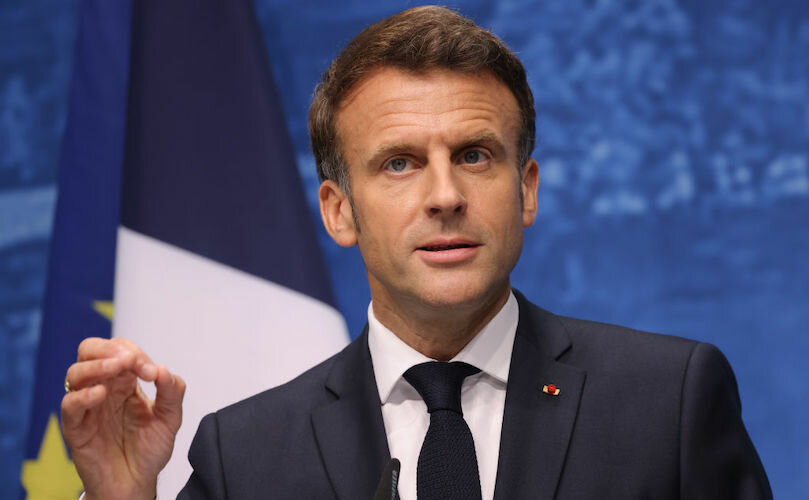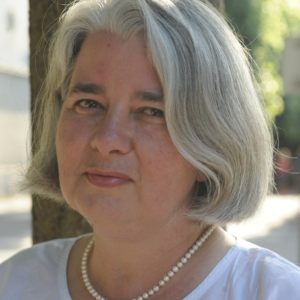Send an urgent message to Canadian legislators urging them to stop expanding assisted suicide
(LifeSiteNews) — As if all hell had broken loose…
Less than two weeks ago, on March 4, the French Parliament voted to engrave the “freedom to abort” in the French Constitution. Days later, on March 8, international women’s day, the enshrinement of the “freedom” to abort in the French Constitution was enacted during a formal public ceremony with quasi-religious overtones led by President Emmanuel Macron.
Almost at the same time, French midwives were given permission to perform surgical abortions, and the national health insurance’s tariffication of the act, which is completely free for women who choose to abort, was boosted by 25 percent to the advantage of abortion providers.
On March 6, the National Assembly had voted to recognize damages caused to homosexuals by “discriminatory” laws in force between 1942 and 1982.
And on March 10, Macron gave an interview in which he announced that a bill making assisted suicide and euthanasia legal – and also totally free – will be submitted to his Council of Ministers by April and then to Parliament, where a first reading is expected to take place in May.
The culture of death is coming full circle in France, where the government is on its way to subsidizing the deliberate killing of human beings from before birth to the very end of life.
Macron sat down with journalists from the unofficial daily of the French episcopate, La Croix, and of the anarchist left-wing Libération, which supported pedophilia in the 1970s, to present his new plan to the nation. His responses were often tortuous: Macron denied wanting to legalize assisted suicide and euthanasia, but that is exactly what his draft law boils down to.
“Words are important, and we must try to name reality correctly without creating ambiguities,” he said. “We have conceived this bill as a bill of fraternity, a bill that reconciles the autonomy of the individual and the solidarity of the nation. Strictly speaking, it creates neither a new right nor a new freedom, but it sets out a path that did not exist before, opening up the possibility of requesting assistance in dying under certain strict conditions.”
Archbishop Eric de Moulins-Beaufort of Reims, president of the French Bishops’ Conference, criticized not only the proposed “end of life” bill but its hypocritical language: “Calling a text that opens the door to both assisted suicide and euthanasia a ‘bill of fraternity’ is a deception. It will steer our entire healthcare system towards death as a solution,” he told La Croix on March 11.
The archbishop also accused Macron of deliberately omitting the words “assisted suicide” and “euthanasia,” resulting in the obfuscation of the issue. “This is just rhetoric. In reality, the text will pave the way for both possibilities at the same time. We, the bishops, are asking society to help people to live and to live to the end, right up to the point of death. What helps people to die in a fully human way is not a lethal product, but affection, consideration and attention,” Archbishop de Moulins-Beaufort said.
Macron told the La Croix and Libération journalists that great pains had been taken to consult with French citizens of all stations: patients, their families, caregivers and “society” as a whole were able to express their opinions during a nationwide consultation. The truth is that 184 representatives were chosen by the Economic, Social and Environmental Council from the French population to “debate” about the planned end-of-life bill. The pro-life Foundation Lejeune complained last year that the list did not include vulnerable patients or caregivers, and that the Council itself had clearly expressed its support for abortion and euthanasia. Forty representatives complained that they felt “manipulated.” Because of this and other reasons, the Foundation stated, “No credibility can be given to the conclusions of this citizens’ convention, which is no more than a show of participatory democracy, that is serving the government to justify its determination to legislate.”
Asked whether the bill will contain the words “euthanasia” or “assisted suicide,” Macron replied, “We’ve chosen the term ‘assisted dying’ because it’s simple, humane and well-defined. The term euthanasia refers to ending someone’s life, with or even without their consent, which is obviously not the case here. Nor is it assisted suicide, which corresponds to a person’s free and unconditional choice to dispose of his or her life. The new framework proposes a possible path, in a given situation, with precise criteria, where the medical decision has a role to play.”
Following the recommendation of the Citizens’ Convention, “assisted dying” will only be available to adults who are capable of “full discernment” in cases of “uncurable” and “life-threatening illness” with a “short- or medium-term” prognosis of death (but “medium term” is not defined), together with “refractory suffering,” be it physical or psychological.
People in such a situation will be able to ask for “help to die,” and the decision to accede to their request will be made “collegially and transparently” by a “medical team” within two weeks after a 48-hour period during which “the solidity of the patient’s determination” will be “tested.” If the answer is negative, the patient will be allowed to submit an appeal to another medical team, and his or her family “who have an interest” in the matter may also appeal the first decision.
If the medical team greenlights “assisted dying,” a prescription for a lethal drug with a validity of three months will be handed to the patient “who will have the capacity to retract at any time,” Macron said. He went into further detail about the way the assisted death would take place, saying, “I would like to make it clear that the medical team examining the request will not only ensure that the criteria for access have been met, but may also seek specialist advice and consult the doctors, psychologists, nurses or care providers who routinely accompany the patient.
“If the decision is made to provide assistance in dying, it will also be up to healthcare professionals to define, in dialogue with the patient, how the procedure is to be implemented. For example, they may recommend the presence or absence of medical staff, or the most appropriate place to carry out the procedure, bearing in mind that this does not rule out any particular situation, whether at home, in a nursing home or in an old people’s home.”
Giving a person access to lethal drugs in view of his or her suicide is certainly a way of procuring “assisted suicide,” however you want to call it. And while the idea is to have people take the drugs personally (but who can guarantee that a third person does not administer them?), Macron made clear that in some cases they will be given by a health care: “Let me read you what the bill says. ‘The administration of the lethal substance shall be carried out by the person him or herself or, if he or she is not physically able to do so, at his or her request, either by a volunteer designated by him or her when no technical constraint prevents it, or by the doctor or nurse accompanying him or her.’”
In other words, the patient will be poisoned, but there will be no supervision of the procedure. The likely outcome of this is that either when the bill is discussed or when it is implemented provisions will be made to monitor the dying procedure, making it similar to euthanasia in other countries where it is legal.
Macron made clear that the whole procedure would be 100 percent funded by the national health insurance: “This is indeed what the bill provides for, because from diagnosis to death, it’s a way of demonstrating that society supports the sick and the frail, by recognizing the complete and absolute part of life that exists right up to the last second,” he said.
This is a particularly hypocritical statement insofar as his plan is to allow that “complete and absolute part of life” existing “up to the last second” will in reality be cut off and destroyed thanks to public funding. Nor did he mention that such a final solution will be much cheaper than taking care of the patient and, if necessary, offering palliative care until natural death.
Macron did say that the draft bill will contain a section regarding the development and funding of palliative care, adding that “the two approaches should not be pitted against each other, as they combine to create an ethical and effective whole for patients.” This is also an untruth, since offering palliative care, which aims to alleviate suffering when curative therapy does not exist, is a moral choice, while intentionally procuring death is a crime.
In the same way, Macron stated that he always “approaches ethical and bioethical issues with great humility and caution.” He certainly tries to avoid sincere and unconfusing language, but the upshot is that he is putting everything in motion to make chosen death legal, albeit under the control of medical teams following legal conditions fixed by the State.
The French Society for Accompaniment and Palliative Care (SFAF), a federation of 15 caregivers’ associations, criticized the plan, condemning its “regrettable confused terminology” and warning that the bill promotes “an ultra-permissive model.” It says that Macron’s system is borrowing from “all the deviations observed around the world,” adding that not a single country at present “allows for the administration of the lethal substance by a close relative.”
Dr. Claire Fourcade, president of the SFAF, stated her firm opposition to the bill. “For us caregivers, this bill is a source of immense concern,” she said, adding that the conditions listed by Macron do nothing to alleviate this. “In all the countries that have legislated on euthanasia, these conditions have only lasted for a limited time, so in my eyes, they are provisional.”
Send an urgent message to Canadian legislators urging them to stop expanding assisted suicide



